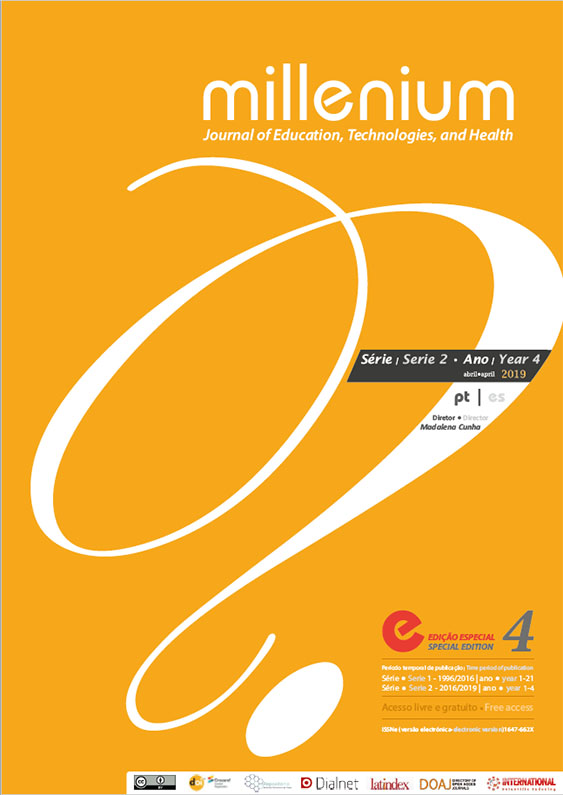Second foreign languages and employability in the Catalonia of the SXX
DOI:
https://doi.org/10.29352/mill024e.18036Keywords:
Graduates, employability, foreign languages, Translation, TourismAbstract
Introduction: Despite considering the English language, Lingua Franca par excellence, Catalan companies, due to their growing economic internationalization, demand more and more professionals with skills in foreign languages associated with skills and attitudes linked to employability. These characteristics reflect the needs of the labour market, which implies a strong synergy between universities and companies in order to provide future graduates with the most suitable skills for a quality labour market insertion.
Methods: Our analysis is based on the study of two different profiles of graduates, on the one hand, students of the Faculty of Translation and Interpretation of the Autonomous University of Barcelona and on the other hand, students of the Degree in Tourism of Euroaula-University of Girona, two areas in which knowledge of second languages is unavoidable for their subsequent incorporation into the labour market. We will focus on second foreign languages (French, German, Italian, etc.) which are part of the growing needs of the Catalan business sector.
Conclusions: The graduates who can accredit linguistic knowledge in two foreign languages, associated with transversal skills linked to employability, are future professionals highly coveted by the world of work. From this perspective, the world of education must try to reconsider the teaching of foreign languages that is more in line with the needs of knowledge, know-how and know how to be.
Downloads
References
Aguilar, J. M. (2004). La enseñanza de la traducción y su relación con las exigències del mercado laboral: estudio de caso. Trans. Revista de Traductología, 8: 11-28
AQU (2017). La inserció laboral dels graduats i graduades de les universitats catalanes, Barcelona, Agencia de la Qualitat Universitaria. Recuperado de: http://www.aqu.cat/doc/doc_56174010_1.pdf
BRITISH COUNCIL (2017), THE FUTURE, The foreign languages the United Kingdom, needs to become a truly global nation,Alcantara Communications, Recuperado de : https://www.britishcouncil.org/organisation/policy-insight-research/languages-future-2017
Calvet, L. J., (2012), le baromètre des langues, Recuperado de : http://wikilf.culture.fr/barometre2012/ Cifuentes Pérez, P. (2017). Las diez competencias fundamentales para la empleabilidad según egresados, profesorado y profesionales de la traducción y la interpretación, Quaderns. Revista de Traducció 24, 197-216 CIS (2016), Barómetro de Diciembre de 2016, Recuperado de: http://www.cis.es/cis/opencm/ES/1_encuestas/estudios/ver.jsp?estudio=14320
IDESCAT (2014). Encuesta de usos lingüísticos de la población, Institut d’Estadística de Catalunya, Generalitat de Catalunya. Recuperado de: http://www.idescat.cat/pub/?id=eulp&geo=mun&lang=es Galán-Mañas, A,(2017). Programa para la mejora de la empleabilidad de los egresados en traducción y interpretación. Un estudio de caso, Conexão Letras Vol 12, nº17
Hagege, C. (2008). Combat pour le français, Paris, Odile Jacob
Hillage, J., Pollard, E. (1998). Employability: developing a framework for policy analysis. Research Brief 85, Department for Education and Employment.
Martínez, J. (2012) Turismo, la competencia de empleabilidad de los futuros profesionales del turismo. TURyDES 5(12) 1-27
Moreno Fernández, F. La Importancia Internacional de las Lenguas. Cambridge: Instituto Cervantes at Faculty of Arts and Sciences - Harvard University, 2015. Recuperado de : http://cervantesobservatorio.fas.harvard.edu/sites/default/files/010_informes_importancia_internacional_lenguas_1.pdf
Michavila, F., Martínez, J. M., M. Martín-González, F., J., García-Peñalvo J. e Cruz Benito J. (2018). "Empleabilidad de los titulados universitarios en España. Proyecto OEEU," Education in the Knowledge Society, vol. 19, no. 1, 21-39, 2018. doi: 10.14201/eks20181912139.
Downloads
Published
How to Cite
Issue
Section
License

This work is licensed under a Creative Commons Attribution 4.0 International License.
Authors who submit proposals for this journal agree to the following terms:
a) Articles are published under the Licença Creative Commons (CC BY 4.0), in full open-access, without any cost or fees of any kind to the author or the reader;
b) The authors retain copyright and grant the journal right of first publication, allowing the free sharing of work, provided it is correctly attributed the authorship and initial publication in this journal;
c) The authors are permitted to take on additional contracts separately for non-exclusive distribution of the version of the work published in this journal (eg, post it to an institutional repository or as a book), with an acknowledgment of its initial publication in this journal;
d) Authors are permitted and encouraged to publish and distribute their work online (eg, in institutional repositories or on their website) as it can lead to productive exchanges, as well as increase the impact and citation of published work
Documents required for submission
Article template (Editable format)





